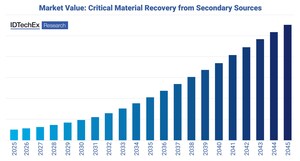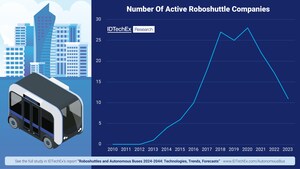BOSTON, Dec. 14, 2020 /PRNewswire/ -- The European Commission (EC) has proposed stricter regulations regarding the sustainability of batteries. The previous Battery Directive dated back to 2006, when safe recycling and disposal of Pb-acid and Ni-Cd batteries were the primary concern and the Li-ion market was still in its infancy. The regulations are intended to improve the sustainability of batteries, including Li-ion, by reducing carbon footprint, use of hazardous materials, and increasing the use of responsibly sourced material.
The announcement comes after a 2-3 year period of increased investment into the development of a European Li-ion battery industry, stemming from governments, automotive OEMs, established Asian battery manufacturers, and also European start-ups, such as Northvolt, Freyr, and Britishvolt. Starting from scratch, these European battery manufacturers must compete with established giants with decades of battery R&D and manufacturing experience. Providing cells and batteries with a lower CO2 footprint and more sustainable and transparent material use may well have been a strategy to allow them to differentiate from the Asian incumbents. Certainly, Northvolt and Freyr highlight their strategies for renewable power use and sustainably sourced materials. Whether this provides them with an advantage, having designed-in sustainability strategies from the start, over companies such as LG Chem, CATL, or Samsung, remains to be seen.
As part of minimizing the impact from Li-ion battery production, recycling will be key, and the EC is proposing stricter requirements on Li-ion battery collection rates with cell manufacturers potentially being required to include minimum percentages of recycled material, including lithium (4%), cobalt (12%), and nickel (20%). In addition to the requirement for a 100% rate of EV battery collection, consumer devices, such as smartphones, may be required to design for removable batteries. Whilst the volumes of end-of-life EV batteries will eventually dwarf those from consumer devices, this is not yet the case, and batteries for consumer devices are rich in cobalt and could therefore be a valuable resource if they can be more easily collected. There has been an increase in activity within Li-ion recycling recently, as well as a greater emphasis on the discussion of the impact of the Li-ion and EV markets. IDTechEx's recent attendance and contribution to (online) energy storage events AABC and The Battery Show can attest to this, where there was a notable increase in the discourse around Li-ion and EV sustainability compared to the same (in-person) events attended only a year ago.
Finally, the EC highlights the need for better performing batteries. Indeed, the impact of battery performance should not be understated - greater specific energy and longer-lasting batteries are key levers in minimizing the total impact of battery production and use. However, simultaneously improving battery performance whilst reducing the use of hazardous materials, problematic cobalt, or energy consumption is not trivial. For example, there is currently a trend toward ever-decreasing cobalt content in high-energy NMC and NCA cathodes, but what are the environmental trade-offs if this results in lower cycle life? Questions such as these need to form part of the discussion around the life-cycle impact of Li-ion batteries as various innovations to battery materials and designs continue to take place.
It is clear the industry should aim to maximize the environmental benefits and minimize any impact from Li-ion batteries, wherever they are used. There is an opportunity to do this at the early stages of an industry forecast for substantial growth, and there is evidence that this is now beginning to happen.
To find out more about the state of Li-ion recycling, please see the IDTechEx report "Li-ion Battery Recycling 2020-2040". For more information on Li-ion technology trends, please see "Li-ion Batteries 2020-2030".
IDTechEx's full portfolio of energy storage market research, including on Li-ion, solid-state batteries, flow batteries and hydrogen can be found at www.IDTechEx.com/research/ES.
IDTechEx guides your strategic business decisions through its Research, Subscription and Consultancy products, helping you profit from emerging technologies. For more information, contact research@IDTechEx.com or visit www.IDTechEx.com.
Media Contact:
Natalie Moreton
Digital Marketing Manager
press@IDTechEx.com
+44(0)1223 812300
Social Media Links:
Twitter: https://www.twitter.com/IDTechEx
LinkedIn: https://www.linkedin.com/company/idtechex/
Facebook: https://www.facebook.com/IDTechExResearch
Logo: https://mma.prnewswire.com/media/478371/IDTechEx_Logo.jpg






Share this article